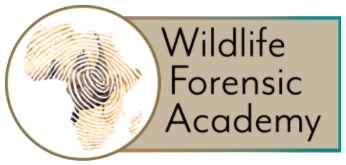1-Week Veterinary Wildlife Forensic Course
This training is designed for Veterinary Students and Veterinarians. The 1-week program offers foundational knowledge in Wildlife Forensics blended with educational touristic activities that will provide you with a truly unique African Educational Experience!
Objectives:
Build foundational knowledge through theoretical lectures, understanding the frameworks in wildlife forensics and crime investigation;
Apply theoretical knowledge in practical scenarios through hands-on demonstrations, exercises, and summative assessments;
Gain a holistic understanding of wildlife forensic work by exploring local ecology, environmental contexts, and cultural influences on wildlife crimes;
Recognize the interconnectedness of human-wildlife conflict;
Explore historical cultural influences on wildlife conservation and criminal activities, and develop awareness of governmental and non-governmental organizations in wildlife protection;
Acquire survival skills, including knowledge of firearms and projectiles relevant to veterinary practitioners dealing with situations involving weapons;
Acquire skills in conducting forensic necropsies, including hands-on experience in entomology and decomposition stages to estimate time of death and link suspects to crimes through insect identification and carcass documentation;
Demonstrate understanding of wildlife veterinary pharmacology, emphasizing practical applications in the field, and gain comprehensive knowledge of toxicology related to wildlife crimes, identifying threats to biodiversity;
Acquire knowledge of wildlife crimes and illegal wildlife trade, addressing issues like poaching and trafficking, and develop practical skills in crime scene processing, survival techniques, and evidence collection;
Enhance proficiency in legal aspects associated with wildlife crime.
Program:
This training includes the following:
Introduction to Wildlife Crime, Poaching and Illegal Trade;
Marine Wildlife Poaching;
Wildlife Forensic Postmortem Training;
Basic Introduction to Firearms and Projectiles Utilized in the Field of Wildlife Veterinary Medicine;
Role of Forensics;
Forensic Traces (Detection and Collection);
Crime Scene Management;
Crime Scene Preservation;
Forensic Photography;
Forensic Entomology;
Wildlife Anatomy: Handling and First Aid;
Forensic Veterinary Pathology and Toxicology;
Human-Wildlife Conflict and Illegal Wildlife Trade;
Hands-on Experience Laboratory Training:
Human Behaviour at the Crime Scene;
Courtroom Training;
Anti-poaching, Tracking and Basic Survival Skills;
Injured and Poisoned Animal Management;
Educational Touristic Activities:
San Cultural Experience;
Iziko Museum;
Marine Conservation and Research;
Tour of Cape Point and Table Mountain;
Cape Town Waterfront;
Two Oceans Aquarium Educational Tour;
Seabird and Raptor Rehabilitation Tour;
Cheetah Outreach Educational Tour;
Game Drive;
There will also be a morning with surfing/sea kayaking/whale watching/ snorkelling with seals - weather permitting.
What You Will Learn:
Students enrolled in this course will delve into the intricate relationship between historical cultures and wildlife crimes, gaining insights into cultural influences on both wildlife conservation efforts and criminal activities. They will develop an awareness of governmental and non-governmental organizations involved in wildlife protection and rehabilitation, broadening their understanding of wildlife conservation ecosystems. The curriculum includes survival skills such as familiarity with firearms and projectiles relevant to veterinary practitioners encountering weapon-related cases, as well as forensic necropsy techniques for investigating deceased wildlife.
Additionally, students will acquire knowledge in toxicology and pharmacology pertinent to wildlife veterinary practices, including the identification and practical application of drugs and toxins in the field. Proper crime scene management and processing techniques will be honed, encompassing skills in evidence collection, post-mortem examinations, and anti-poaching behaviors. Legal aspects of wildlife crimes will also be covered, including courtroom presentation, forensic photography, and the art of providing testimony in simulated courtroom scenarios, ensuring students are equipped to effectively communicate findings in legal and investigative contexts while understanding the nuances of evidence presentation and cross-examination.
Students will also participate in a range of educational visits and activities which will provide you with knowledge of the different organisations and initiatives actively working in conservation in South Africa as well as gaining a better understanding of South African culture.
How You Will Learn:
A mix of lectures, demonstrations, flipped classroom and hands-on practical activities will be utilised. In addition, education excursions will be integrated into programme to provide background context to South African wildlife, conservation and culture.
Lectures
Theory, knowledge, understanding
Experimental Learning
Practice, problem solving, application
Educational Excursions
Context, background, culture
Educational Aims:
To present and enhance knowledge and practical skills in wildlife crime investigations and wildlife veterinary science.
To apply current forensic-, policing knowledge and skills to wildlife crime investigations including the criminal justice chain and recovery, analysis and interpretation of evidence.
Learning Outcomes:
Establish foundational knowledge in wildlife forensics and crime investigation.
Apply theory in practical settings and assessments.
Understand wildlife forensic work, integrating local ecology and cultural influences.
Recognize and neutralize human-wildlife conflicts.
Investigate historical cultural impacts on conservation and crime, and roles of organizations.
Acquire survival skills for veterinary practitioners, including firearm knowledge.
Gain proficiency in conducting forensic necropsies and linking suspects to crimes.
Understand wildlife pharmacology and toxicology, focusing on practical applications and biodiversity threats.
Develop skills in addressing wildlife crimes and illegal trade, including evidence collection.
Enhance legal proficiency for courtroom presentation and testifying effectively.
Location:
The training will be facilitated at Buffelsfontein Game and Nature Reserve on the West Coast of South Africa as well as in Cape Town.
What’s Included:
Accommodation;
Catering (Breakfast, Lunch and Dinner);
Transport during the course;
All entry and tour fees.
Not Included:
Alcoholic drinks;
Flights to and from Cape Town;
Our shuttle service will collect course participants from Cape Town between 8:00 AM and 9:00 AM on the Sunday the course begins. The course will conclude on Saturday afternoon, with participants being dropped off at their accommodation or the airport. Upon request, we can provide recommendations for reputable drivers for airport transfers and suggested Cape Town accommodations.
Upcoming Course Dates:
20 April 2025
Cost:
€1750






